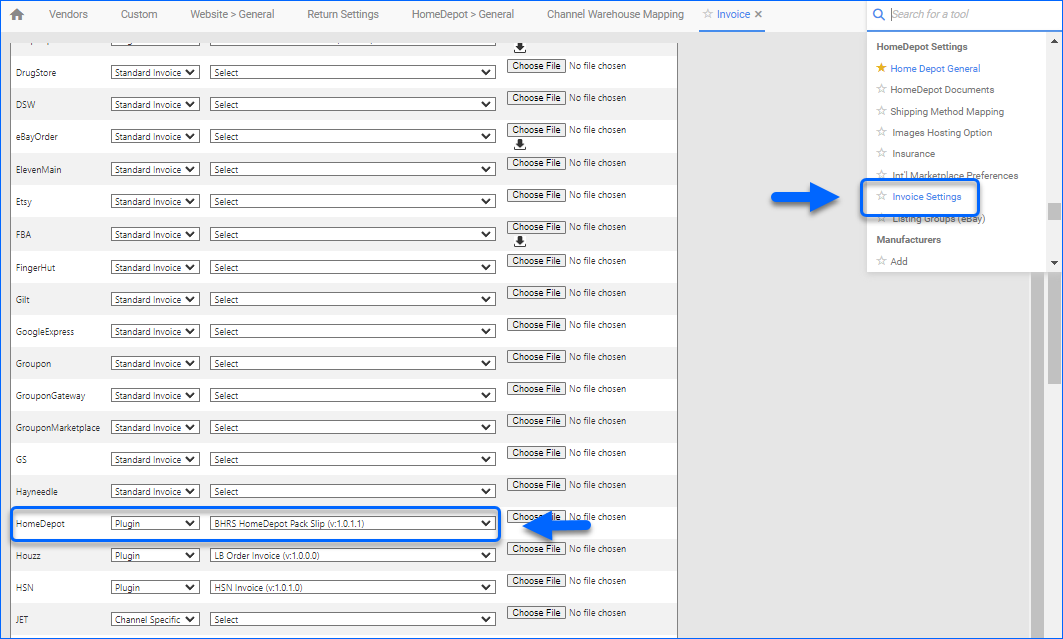Overview
Home Depot is the largest home improvement supply store in the U.S., with more than 2300 stores across North America. They offer suppliers the opportunity to sell a wide variety of home and garden improvement products using their dropship program.
Integrating your Sellercloud account with Home Depot allows you to update the inventory levels of your listings, configure various product properties, manage your Home Depot orders, and more. This integration works through EDI documents, transmitting information between the two services. The document exchange goes through CommerceHub, a third-party platform.
Integrate with Home Depot
Prior to integrating your Sellercloud account with Home Depot, you must have the following accounts:
- Home Depot Supplier Account – Contact Home Depot to become an approved seller and configure your Home Depot Supplier Account.
- CommerceHub Account – To integrate with Home Depot, you need to have an account with CommerceHub. A Partner Setup Specialist will be assigned to assist you throughout the onboarding process.
There are two methods to integrate with Home Depot via CommerceHub:
- Through SFTP obtained from CommerceHub.
- Through VAN obtained from Sellercloud.
Next, you must request the test and production ISA IDs and Qualifiers. You also need your own Customer ISA ID, which is usually a phone number that isn’t used in any other integration.
Once you receive your test credentials, testing should be conducted to confirm that all documents are being processed correctly. The testing usually consists of transmitting a few test files of each type and troubleshooting potential issues. Refer to the Related Documentation section for more detailed testing instructions.
To integrate your Home Depot account with Sellercloud:
- Navigate to Settings > Companies > Manage Companies > Select a Company.
- From the Toolbox, select HomeDepot Settings > Home Depot General.
- Click Edit.
- In the Home Depot General Settings panel, check HomeDepot Enabled.
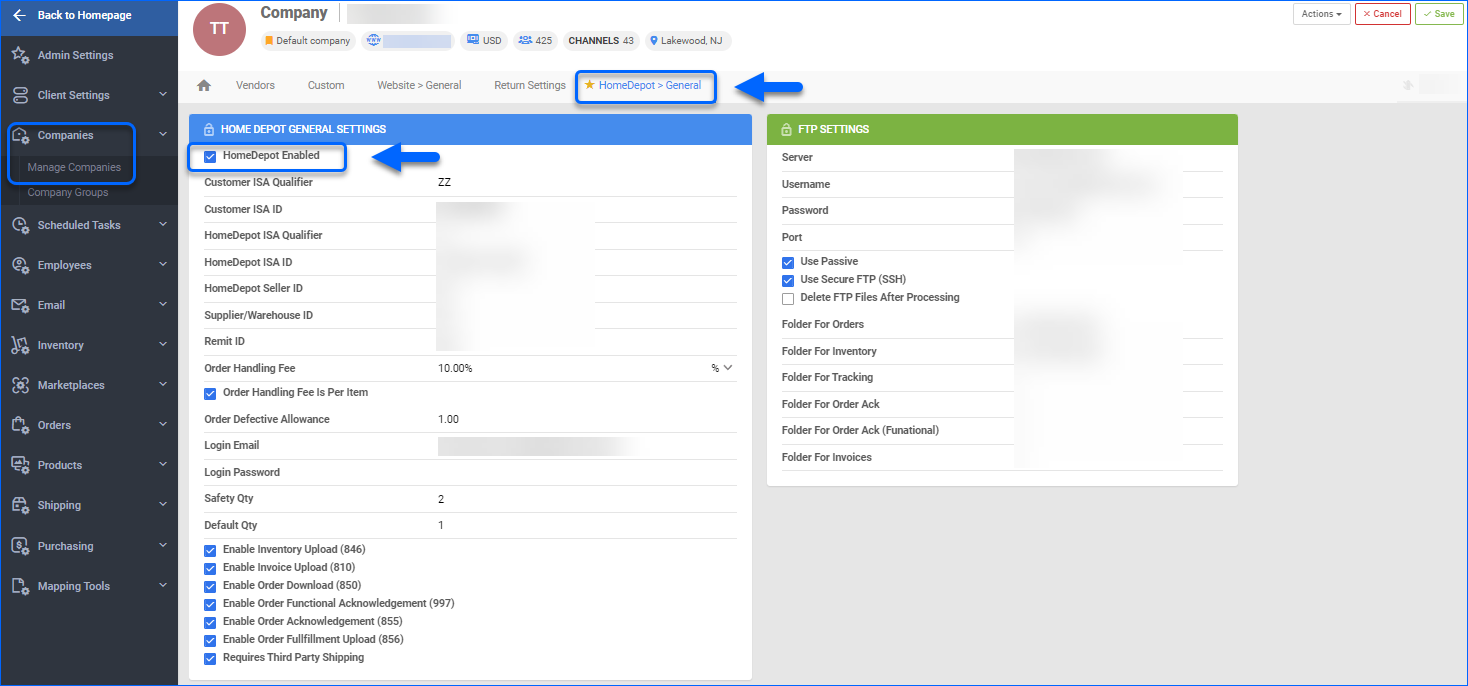
- If applicable, set co-op fees for the dropshipping service.
- Next, enter the FTP credentials (Server, Username, Password, and Port) provided by CommerceHub or the VAN credentials obtained from Sellercloud in the FTP Settings panel.
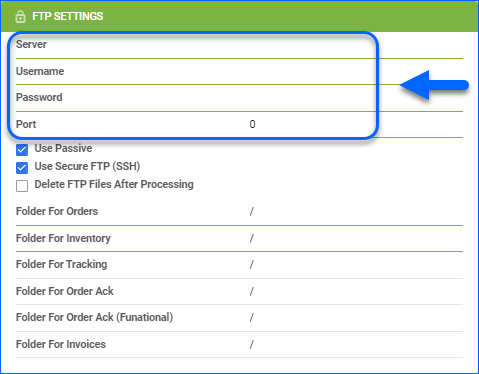
- Configure the remaining Home Depot General Settings to automate key processes and click Save.
Map Warehouses
If you have multiple warehouses set up in CommerceHub, you can map them to their corresponding locations in Sellercloud with the Channel Warehouse Mapping tool:
- Navigate to Settings > Companies > Manage Companies and open a company.
- From the Toolbox, select Channel Warehouse Mapping.
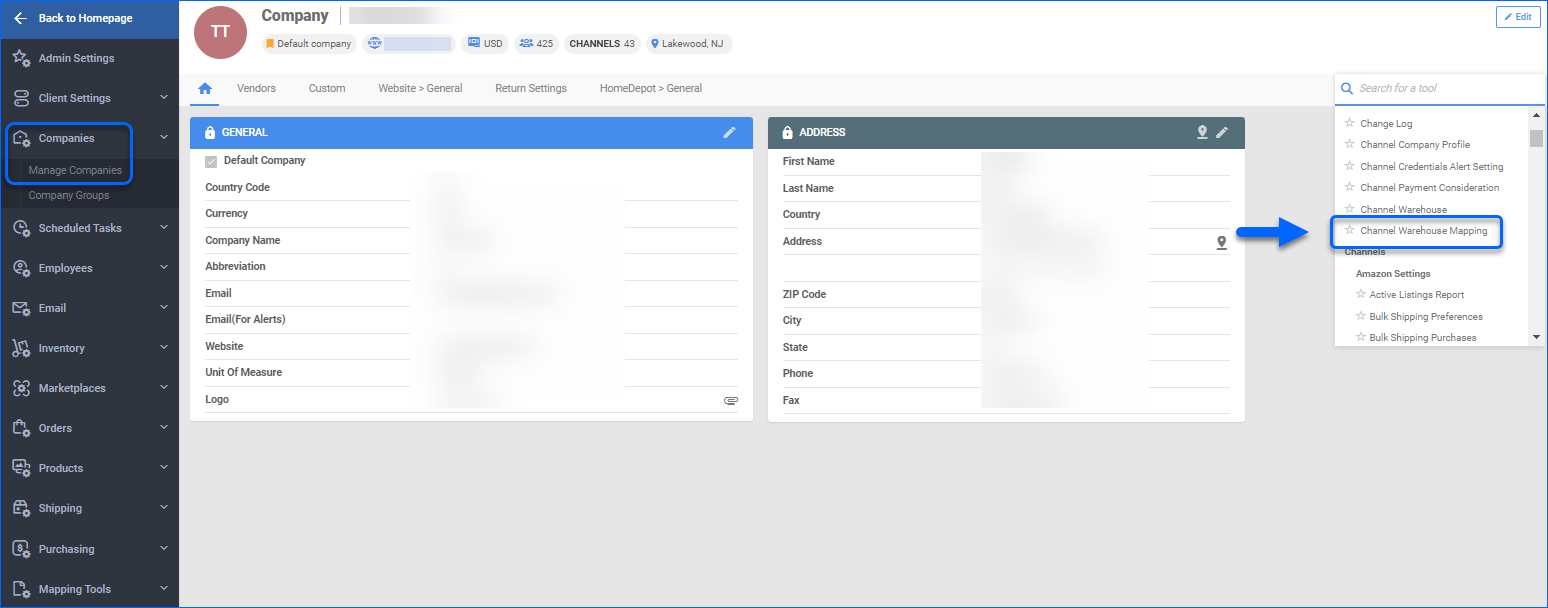
- Click Edit and choose Home Depot from the Select Channel dropdown menu.
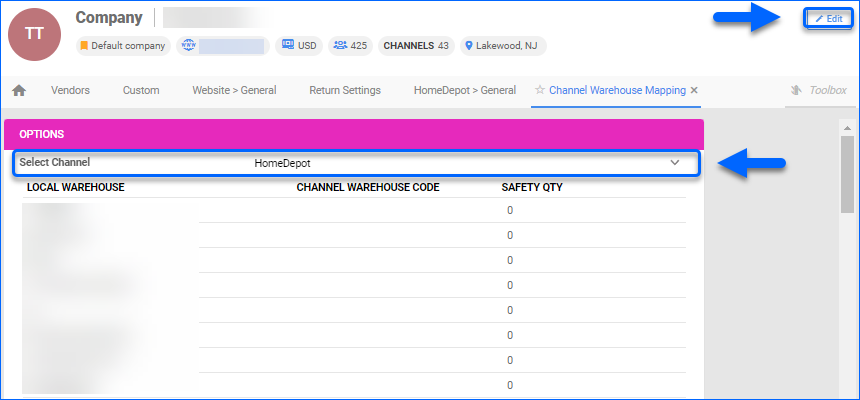
- The Local Warehouse column shows all warehouses in Sellercloud.
- Select the Channel Warehouse Code and the corresponding Safety Qty.

- Click Save.
Map LTL Carrier Codes
If you are using Less Than a Truckload (LTL) carriers for Home Depot Orders, the correct SCAC codes need to be mapped in Sellercloud. Reach out to Home Depot support to acquire the list of carriers and corresponding codes. Once you have those, contact Sellercloud Support and provide the information. A representative will add the mapping in the backend for your server.
Configure PDF invoices
If you would like to print PDF invoices for your Home Depot orders through either Sellercloud or Shipbridge, you must have the Home Depot Invoice PDF plugin set up under your designated Home Depot company. Contact Sellercloud Support to ensure that the latest plugin is installed on your server.
To set up the invoice plugin:
- Go to Company Settings.
- Click Toolbox and select Invoice Settings.
- Click Per Channel Preferences.
- For HomeDepot, select Plugin > HomeDepot Packing Slip.
- Click Save.
Related Documentation
Refer to the below documents to find additional instructions on how to establish your Home Depot Integration through CommerceHub:
